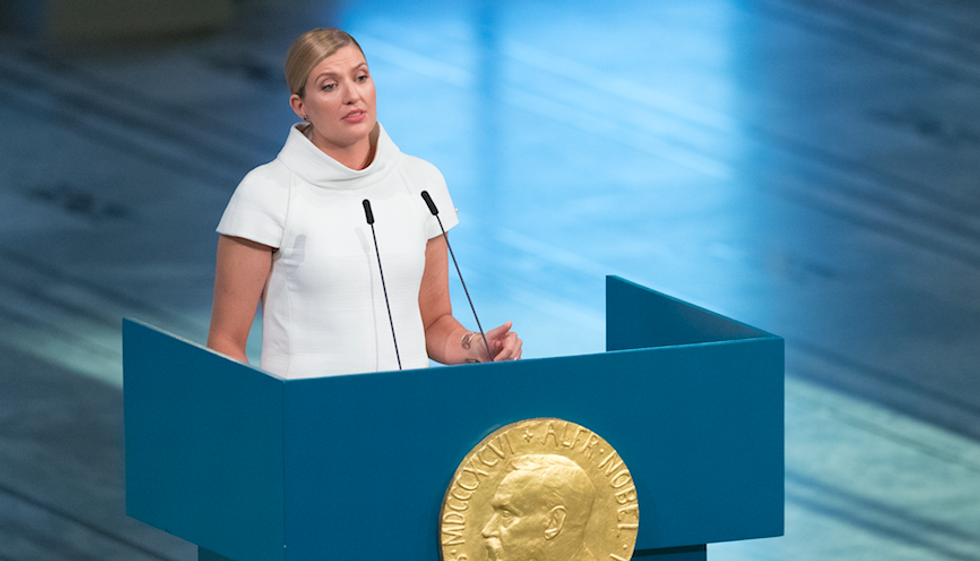Pope Francis made a renewed appeal for nuclear disarmament on Sunday, addressing a crowd at the Vatican's St. Peter's Square as the Nobel Committee was awarding one of the world's foremost anti-nuclear groups with the 2017
Nobel Peace Prize in Oslo.
The Pope spoke out about "the strong link between human rights and nuclear disarmament," arguing that any group concerned with disadvantaged populations must be "also working with determination to build a world without nuclear arms."
The pontiff has made clear his strong views on eliminating nuclear arsenals from world governments, speaking several times on the issue this year. Last month, he hosted a symposium at the Vatican entitled "Prospects for a World Free from Nuclear Weapons," which was attended by United Nations representatives, Nobel Peace laureates, and officials from nuclear powers including the United States, Russia, and South Korea.
As he spoke in Vatican City, the Nobel Committee was holding its annual Nobel Prize awards ceremony, at which the International Campaign to Abolish Nuclear Weapons (ICAN) was awarded the year's Nobel Peace Prize.
Accepting the award, Beatrice Fihn, the head of the global coalition, made her own urgent call for nuclear disarmament.
"The only rational course of action is to cease living under the conditions where our mutual destruction is only one impulsive tantrum away," Fihn said, appearing to allude to recent heightened tensions between the U.S. and North Korea.
Nuclear weapons, she added, "are a madman's gun held permanently to our temple."
Since February, North Korea has tested 23 missiles, claiming to have gained the ability to fire a nuclear weapon that could reach the U.S. mainland. President Donald Trump and North Korean leader Kim Jong-un have exchanged increasingly aggressive insults as Americans have reported low levels of confidence in Trump's ability to safely manage the situation.
"Will it be the end of nuclear weapons, or will it be the end of us?" said Fihn in her acceptance speech.
In its efforts to rid the world of the nuclear threat, ICAN worked to advance of a U.N. treaty banning such weapons. The treaty has been signed by 122 countries--but none of the world's nine nuclear powers have supported it.
Despite the obstacles that still exist for ICAN and other groups that are working to eliminate nuclear arsenals, Fihn noted in her speech that the treaty's support by more than 100 countries signifies that "at long last, we have an unequivocal norm against nuclear weapons."




